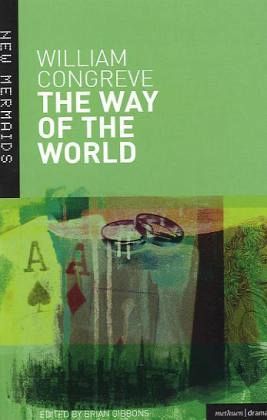Nicht lieferbar

The Way of the World
Versandkostenfrei!
Nicht lieferbar
If seventeenth- and eighteenth-century comedy differ in that the formeris about sex (and adultery actually happens) while the latter is aboutlove (and adultery is merely threatened), then Congreve - writing atthe turn of the century - occupies a phase of transition. Mirabell isno saint, but he deserves the title of 'hero' for masterminding theaction with the same wit and humanity with which the dramatist designedthe play. Mirabell is both financially and amorously interested in theskittish Millamant, who declares that she might, with certain provisos,'dwindle into a wife'. The introduction to ...
If seventeenth- and eighteenth-century comedy differ in that the former
is about sex (and adultery actually happens) while the latter is about
love (and adultery is merely threatened), then Congreve - writing at
the turn of the century - occupies a phase of transition. Mirabell is
no saint, but he deserves the title of 'hero' for masterminding the
action with the same wit and humanity with which the dramatist designed
the play. Mirabell is both financially and amorously interested in the
skittish Millamant, who declares that she might, with certain provisos,'dwindle into a wife'. The introduction to this edition clarifies the
playwright's and his characters' highly intricate plotting and argues
that the key metaphor of the play is card-playing, in which fortune,
cunning, concealment and a high trump drawn from the sleeve at the
right moment will win the game - and the heiress.
is about sex (and adultery actually happens) while the latter is about
love (and adultery is merely threatened), then Congreve - writing at
the turn of the century - occupies a phase of transition. Mirabell is
no saint, but he deserves the title of 'hero' for masterminding the
action with the same wit and humanity with which the dramatist designed
the play. Mirabell is both financially and amorously interested in the
skittish Millamant, who declares that she might, with certain provisos,'dwindle into a wife'. The introduction to this edition clarifies the
playwright's and his characters' highly intricate plotting and argues
that the key metaphor of the play is card-playing, in which fortune,
cunning, concealment and a high trump drawn from the sleeve at the
right moment will win the game - and the heiress.



